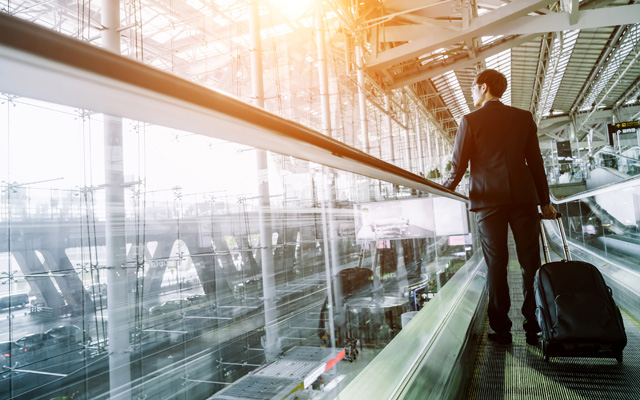
The ongoing trade war between the US and China, as well as the US’ blanket tariff hikes on all countries, are keeping Asian companies on high alert, but business events and travel professionals in South-east Asia are not seeing any major impact on activities yet.
Peter Koh, chairperson of the APAC Advisory Board with the Global Business Travel Association, said companies are still “watching” how the tariff issue continues to unfold, and so there has been “very little impact on business travel”.

While Koh said the Asian economy is “very much dependent on China”, which bears the brunt of the US’s Liberation Day tariffs, many businesses in the region “are built around Asia-Pacific” and serve diverse markets.
“There is a lot of trade going on within Asia. If one market falls, companies have opportunities in others. As such, I expect business travel in Asia not to be very much affected by the US-China tariff war,” opined Koh.
According to the GBTA Business Travel Index Report published in mid-2024, Asia-Pacific was the fastest-growing region in 2023, followed by Western Europe and North America. In Asia-Pacific. An earlier GBTA study in 2022 placed China as the world’s largest business travel market, accounting for nearly 25 per cent of global business travel spend, up from a five per cent share just two years before.
An indicator of faltering business travel sentiments, according to Koh, would be how airlines approach their transatlantic flight schedules going forward.
“Thai Airways is expected to resume its direct US flights this year, so let’s stay tuned to that,” he remarked.
When asked if frustrations with US tariffs could discourage Asian business owners from making trips to the US, Koh said companies cannot afford to be sentimental. “If there are clients to service in the US, Asian businessmen will have to make that trip,” said Koh.
“What could change that is the next executive order on restricted travellers coming into the US that president Trump intends to sign.”
A Reuters report said China is not among the 41 countries being considered for a US travel ban; Laos, Myanmar, Cambodia, Bhutan and Pakistan in Asia are.
However, China has responded to US trade restrictions with its own travel advisory against trips to the US. The Chinese Ministry of Culture and Tourism on April 9 reminded its citizens to assess travel risks amid “deterioration of Sino-US economic and trade relations and the domestic security situation in the US”.
Offering another bird’s-eye view on the tariff impact on Asian business travel and events, Ashwin Gunasekeran, CEO of Penang Convention & Exhibition Bureau, said association meetings and heavy machinery exhibitions could first see changes – specifically in reconsidering the US as a host destination.
“Association meetings that are scheduled to take place in the US over next few years may revisit plans should the tariff war get out of hand. Associations may choose to move their meetings to destinations in Asia-Pacific or Europe due to cost concerns and negative sentiments,” he said.
“The tariff, if reinstated after the 90-day pause, will have a greater impact on exhibitions serving heavy industries. Equipment being sent into the US for exhibitions, where they may be sold, will attract a heavier levy now, so destinations without such restrictive tariffs would seem a more welcoming place for industrial exhibitions,” Gunasekeran continued, adding that Asian destinations could stand to benefit as global trade relations evolve.
While Roger Ong, director, client management and M&I, travel services with Singapore-based Plover Trip, also agrees that Asian businesses are staying calm and observant for now, he told TTGmice that some clients have “asked for more flexible arrangements or contingency options, just in case the trade environment gets more turbulent”.
So, while there has not been a “major pull-back in forward event planning from clients”, event owners are certainly conscious of disruption possibilities and are stretching their decision-making timelines.




















